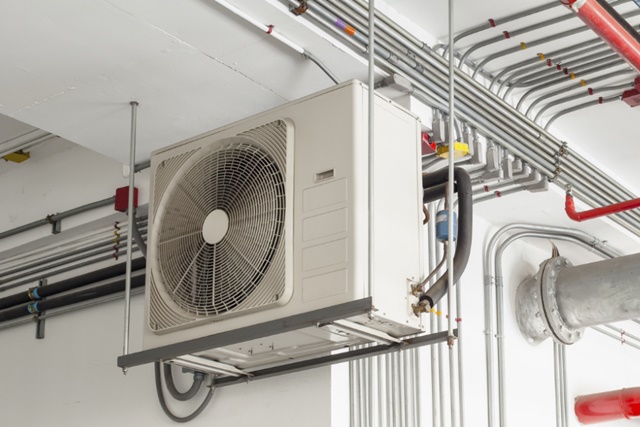The Different Types of Air Conditioning Systems
In the scorching heat of summer or the biting cold of winter, air conditioning systems have become a staple in our lives. The evolution of these systems has led to a variety of options catering to different needs and preferences.
Central Air Conditioning
Central air conditioning is a comprehensive cooling system designed to regulate the temperature of an entire building. This system, commonly found in large homes and commercial spaces, functions by distributing cool air through a network of ducts. While it offers uniform cooling, it comes with its own set of advantages and disadvantages.
Split Air Conditioning
For more localized cooling, split air conditioning is a popular choice. Consisting of an indoor unit and an outdoor condenser, this system allows for flexibility in cooling specific rooms. It's efficient and easy to install, making it a common solution for both residential and commercial spaces.
Window Air Conditioning
Window air conditioning units are a classic choice, especially for single rooms. These units are compact, easy to install, and cost-effective. However, their efficiency may vary, and they are not suitable for larger spaces.
Portable Air Conditioning
If mobility is a priority, portable air conditioning units are the answer. These units can be moved from room to room, providing immediate relief where needed. While convenient, they may not be as powerful as fixed systems.
Ductless Mini-Split Air Conditioning
Combining aspects of both central and split systems, ductless mini-split air conditioning offers zoning capabilities without the need for extensive ductwork. This makes it an energy-efficient and customizable option for various living spaces.
Geothermal Air Conditioning
For those looking to minimize their environmental impact, geothermal air conditioning harnesses the Earth's natural heat. By utilizing stable ground temperatures, this system provides efficient and sustainable cooling, albeit with a higher upfront cost.
Evaporative Coolers
Ideal for dry climates, evaporative coolers use the natural process of water evaporation to cool the air. These systems are energy-efficient and work well in areas with low humidity.
Smart Air Conditioning Systems
As technology advances, so do air conditioning systems. Smart AC systems offer features like remote control, programmable settings, and integration with other smart devices. This not only enhances convenience but also contributes to energy efficiency.
Energy-Efficient Air Conditioning
In the current era of environmental consciousness, energy-efficient air conditioning is a key consideration. Simple practices like regular maintenance, proper insulation, and investing in high-efficiency systems can significantly reduce energy consumption.
Maintenance and Troubleshooting
To ensure the longevity and effectiveness of your air conditioning system, regular maintenance is crucial. Cleaning filters, checking refrigerant levels, and addressing issues promptly can prevent major breakdowns and keep your system running smoothly.
Choosing the Right System for Your Needs
Selecting the appropriate air conditioning system involves considering factors such as the size of the space, climate, and energy efficiency. Consulting with professionals can provide valuable insights into the best-suited system for your specific requirements.
Future Trends in Air Conditioning
The future of air conditioning is marked by sustainability and technological advancements. Innovations like solar-powered AC units, improved refrigerants, and integration with renewable energy sources showcase the industry's commitment to a greener future.
Cost Considerations
While the initial cost of installing an air conditioning system can be substantial, it's essential to consider the long-term savings and potential government incentives. Investing in energy-efficient systems may result in lower utility bills over time.
Conclusion
In a world where comfort is paramount, the different types of air conditioning systems cater to diverse needs. From the simplicity of window units to the sophistication of smart systems, each option has its advantages. Making an informed decision based on your requirements ensures not only a cool environment but also energy efficiency and sustainability.
FAQs
- How often should I clean the filters of my air conditioning unit? Regularly cleaning or replacing filters every 1-2 months is recommended to maintain optimal performance.
- Are smart air conditioning systems worth the investment? Smart systems offer convenience and energy savings, making them a worthwhile investment for those seeking advanced features.
- What factors should I consider when choosing an air conditioning system for a large space? Factors such as the cooling capacity, zoning capabilities, and energy efficiency are crucial for selecting a system for larger spaces.
- Can I install an air conditioning system on my own, or should I seek professional help? While some units are DIY-friendly, it's advisable to seek professional installation, especially for complex systems like central air conditioning.
- How can I improve the energy efficiency of my existing air conditioning system? Ensuring proper insulation, sealing leaks, and regular maintenance can significantly enhance the energy efficiency of your air conditioning system.





Comments
Post a Comment